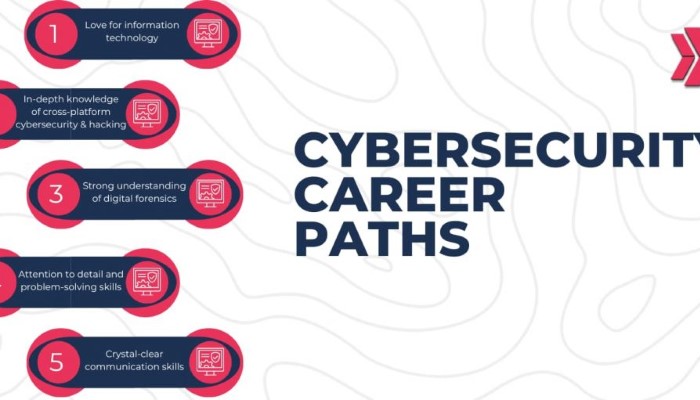The field of cyber security is one of the fastest-growing sectors in technology today. As the world becomes increasingly digital, the demand for skilled professionals to protect data and systems from cyber threats is at an all-time high. Entry-level cyber security jobs offer a promising gateway into this exciting and dynamic field, providing numerous opportunities for growth and specialization. This guide will explore various aspects of entry-level cyber security jobs, including the roles available, required skills, education paths, certifications, job search strategies, and career advancement tips.
Why Choose a Career in Cyber Security?

High Demand for Cyber Security Professionals
- Growing Cyber Threats: With the rise in cyber attacks, companies and organizations are investing more in cyber security measures.
- Job Stability: The cyber security field offers excellent job security due to the constant demand for skilled professionals.
- Competitive Salaries: Entry-level positions in cyber security often come with attractive salary packages.
Opportunities for Growth and Specialization
- Career Advancement: Numerous paths for advancement, such as becoming a Security Analyst, Security Architect, or Chief Information Security Officer (CISO).
- Diverse Specializations: Opportunities to specialize in areas like ethical hacking, network security, and forensic analysis.
Contribution to Society
- Protecting Data: Play a crucial role in protecting sensitive information and maintaining privacy.
- Combating Cyber Crime: Help in fighting against cyber crime and ensuring the security of digital infrastructures.
Types of Entry-Level Cyber Security Jobs
Security Analyst
Responsibilities
- Monitoring and analyzing network traffic for suspicious activity.
- Implementing security measures to protect data and systems.
- Conducting vulnerability assessments and penetration tests.
Required Skills
- Knowledge of network protocols and firewall management.
- Experience with security information and event management (SIEM) tools.
- Strong analytical and problem-solving skills.
Incident Responder
Responsibilities
- Responding to security incidents and breaches.
- Performing root cause analysis to determine the origin of incidents.
- Coordinating with other teams to mitigate and resolve security issues.
Required Skills
- Quick decision-making abilities.
- Familiarity with incident response procedures and tools.
- Strong communication skills to work with different departments.
Security Consultant
Responsibilities
- Advising organizations on best security practices.
- Conducting security audits and assessments.
- Designing and implementing security strategies.
Required Skills
- In-depth knowledge of various security frameworks and regulations.
- Strong consulting and advisory skills.
- Ability to stay updated with the latest security trends and technologies.
Penetration Tester (Ethical Hacker)
Responsibilities
- Simulating cyber attacks to identify vulnerabilities.
- Reporting findings and suggesting improvements.
- Ensuring compliance with security policies and regulations.
Required Skills
- Proficiency in penetration testing tools and methodologies.
- Strong understanding of system architecture and network design.
- Ethical hacking certification (e.g., CEH, OSCP).
Security Software Developer
Responsibilities
- Developing security software and tools.
- Writing secure code and conducting code reviews.
- Collaborating with development teams to integrate security features.
Required Skills
- Proficiency in programming languages like Python, Java, or C++.
- Knowledge of secure coding practices.
- Experience with software development lifecycle (SDLC).
Educational Pathways to Enter Cyber Security

Formal Education
Degrees in Cyber Security
- Bachelor’s Degree in Cyber Security: Provides foundational knowledge in computer science, network security, and ethical hacking.
- Master’s Degree in Cyber Security: Offers advanced studies in specialized areas like cryptography, cyber law, and digital forensics.
Related Degrees
- Computer Science: Covers fundamental concepts that are crucial for cyber security roles.
- Information Technology (IT): Focuses on the practical application of technology in securing systems and networks.
Alternative Education Paths
Bootcamps
- Cyber Security Bootcamps: Intensive, short-term programs that provide hands-on training in various cyber security skills.
- Benefits: Quick entry into the field, practical experience, and networking opportunities.
Online Courses and Certifications
- Platforms: Coursera, edX, Udemy, and more offer specialized courses in cyber security.
- Advantages: Flexible learning schedule, affordable, and up-to-date content.
Essential Certifications for Entry-Level Cyber Security Jobs
CompTIA Security+
- Overview: A widely recognized entry-level certification that covers foundational security concepts.
- Benefits: Validates basic knowledge and skills in network security, compliance, and operational security.
Certified Ethical Hacker (CEH)
- Overview: Focuses on ethical hacking techniques and methodologies.
- Benefits: Demonstrates proficiency in identifying and addressing security vulnerabilities.
GIAC Security Essentials (GSEC)
- Overview: Covers essential skills required for security professionals.
- Benefits: Recognized globally and validates a broad range of security competencies.
Cisco Certified CyberOps Associate
- Overview: Focuses on security operations and incident response.
- Benefits: Provides practical skills needed for monitoring, detecting, and responding to cyber threats.
Building Relevant Skills for Entry-Level Cyber Security Jobs
Technical Skills
- Network Security: Understanding of network protocols, firewalls, and intrusion detection systems.
- Operating Systems: Proficiency in Windows, Linux, and Unix systems.
- Programming: Basic knowledge of programming languages such as Python, Java, or C++.
Soft Skills
- Analytical Thinking: Ability to analyze and interpret data to identify security threats.
- Problem-Solving: Quick and effective problem-solving skills to address security incidents.
- Communication: Strong verbal and written communication skills to convey complex security concepts.
Gaining Practical Experience
Internships
- Benefits: Provides hands-on experience and exposure to real-world security issues.
- Finding Internships: Look for opportunities with tech companies, government agencies, and educational institutions.
Volunteer Work
- Opportunities: Non-profit organizations, community projects, and open-source initiatives often need cyber security expertise.
- Advantages: Builds your resume and demonstrates your commitment to the field.
Personal Projects
- Examples: Setting up a home lab, participating in Capture the Flag (CTF) competitions, or contributing to security forums.
- Benefits: Enhances your practical skills and showcases your initiative.
Networking and Professional Development

Joining Professional Associations
- Organizations: (ISC)², ISACA, and CompTIA offer memberships that provide networking opportunities and resources.
- Benefits: Access to industry events, conferences, and professional development resources.
Attending Conferences and Events
- Conferences: DEF CON, Black Hat, and RSA Conference are renowned for their focus on cyber security.
- Advantages: Learn from industry experts, discover new trends, and expand your professional network.
Engaging in Online Communities
- Forums and Groups: Reddit, Stack Exchange, and LinkedIn groups offer platforms to discuss cyber security topics.
- Benefits: Gain insights, share knowledge, and connect with like-minded professionals.
Job Search Strategies for Entry-Level Cyber Security Positions
Tailoring Your Resume and Cover Letter
- Highlight Relevant Skills: Focus on the skills and experiences that align with the job description.
- Quantify Achievements: Use metrics to demonstrate your impact (e.g., “Reduced security incidents by 30%”).
Leveraging Job Portals and Websites
- Popular Sites: Indeed, Glassdoor, LinkedIn, and specialized cyber security job boards.
- Tips: Set up job alerts, use keywords related to cyber security, and apply regularly.
Preparing for Interviews
- Technical Questions: Be ready to answer questions on network security, threat mitigation, and specific tools.
- Behavioral Questions: Demonstrate your problem-solving abilities and how you handle pressure.
Career Advancement in Cyber Security
Continuous Learning
- Advanced Certifications: CISSP, CISM, and other advanced certifications can open doors to higher-level positions.
- Further Education: Pursuing a master’s degree or specialized courses to deepen your knowledge.
Gaining Experience
- On-the-Job Learning: Take on challenging projects and responsibilities to build your expertise.
- Mentorship: Seek guidance from experienced professionals to accelerate your growth.
Exploring Specializations
- Areas of Focus: Cloud security, mobile security, threat intelligence, and more.
- Benefits: Specializing can lead to higher salaries and more targeted job opportunities.
Starting a career in cyber security is a rewarding journey that offers numerous opportunities for growth and specialization. By understanding the various entry-level roles, building the necessary skills, gaining practical experience, and continuously developing professionally, you can pave the way for a successful and fulfilling career in this dynamic field. Whether you are just starting or looking to transition into cyber security, this comprehensive guide provides the insights and resources needed to embark on your journey with confidence.


